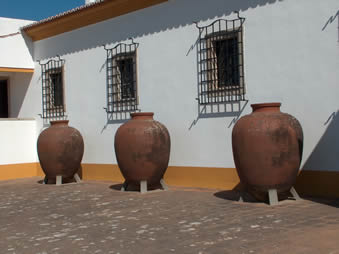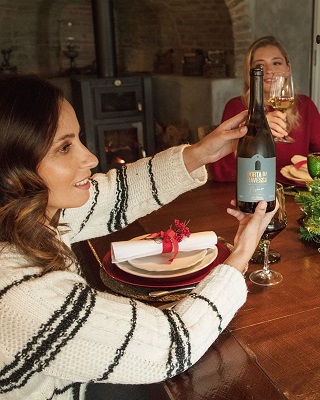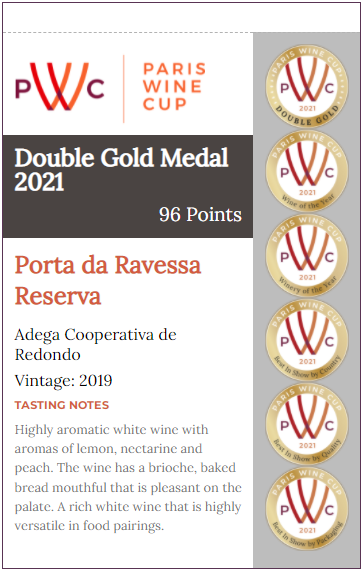Super Early Bird Ends
30 April 2025
Warehouse Deadline
30 Sep 2025
Judging Dates
7 October 2025
Winners Announcement
28 October 2025

The Alentejo region of Portugal was primarily known for its cork production until the European Union financially helped the Alentejo wine cooperatives to manufacture high-quality wines to compete at the international level. This favour from the EU resulted in the emergence of winemaking in the region and it now provides the largest volume of quality wines from the country.
[[relatedPurchasesItems-45]]
This beautiful wine region is situated between Algarve and Lisboa regions, Alentejo is bordered by the Tejo river in the North and the Coastal Algarve lies on the southern end. Alentejo receives around 3,000 hours of sunshine annually which is higher than the average of the country. This minimizes the chances of vine pests and helps in creating those voluptuous reds and aromatic white wines that are not just recognized domestically but also in foreign markets especially the USA, Brazil, China, Canada and Switzerland.
The Talhao winemaking is 2000 years old and the country is doing everything to preserve and innovate the process simultaneously. These wines are still made in the clay Amphoras which add natural aromas, minerality, deep golden colour with an orange hue to the white wines. Moreover, Portugal is the only country that has a dedicated appellation for these beverages.

The millinery wine practice is still preserved in Alentejo, Source: Wine Anorak
A noteworthy contributor to the wine scene in Portugal is Adega de Redondo which produces 9 to 12 million litres of wine every year. Adega Cooperativa de Redondo was founded in 1956 by a group of 14 wine growers and was one of the first to establish. It helped in the development of wine culture especially after the 1980s when the region received funding from the EU. Currently, this winery has 8 brands: Albarada, AR, Castelo De Alandroal, Latitude, Longitude, Mare Viva, Porta Da Ravessa, Real Lavandor.
Porta Da Ravessa is a brand that has become an actual ambassador for the quality and authenticity of wines from Alentejo. The sub-region of Redondo where this wine is carefully crafted is protected by the Serra d'Ossa range which raises altitude at 600 meters. The vines are protected from the wind and receive cold, dry winters and hot summers. This topography helps to produce a balanced fruit and results in citrus, aromatic white wines.

It is made using local varietals Fernão Pires, Arinto and Verdelho, Source: Instagram
Porta Da Ravessa Reserva 2019 is an ideal example of the amalgamation of all these factors. This white wine won the Wine of the year and received double gold at the 2021 Paris Wine Cup. Not only this, but it also grabbed the Best wine in all three categories: Country, Packaging and quality. This wine has definitely set the bar for quality wines coming from Portugal.
The brand aims to target young, sophisticated and demanding clientele offering wines at different price segments.

Porta da Ravessa Reserva Shelf talker, Source: Paris Wine Competition
Review of Porta De Ravessa Reserva from the 2021 Paris Wine Cup
Points Scored: 96 points
Medal won: Double Gold, Wine of the Year
Tasting notes: Citrine colour and bright appearance, fine and intense aroma, where white fruit notes with spicy nuances predominate. Its mouth-feel is elegant and creamy with a lingering finish. A distinctive and harmonious profile.
[[relatedPurchasesItems-30]]
As unpredictable weather affects the major wine growing regions in the world, Alentejo has steps towards focussing on sustainable practices to be followed in the winemaking process. The local government of Alentejo launched the Wines of Alentejo Sustainability Program (WASP) in 2015. In 5 years 45% of the winemakers have collaborated with this programme and Adega de Redondo is a humble participant. This programme will ensure that the production of wine evolves in such a way that none of the resources gets compromised for future generations. Some of the WASP initiatives include encouraging less usage of spray pesticides, water recycling, and powering the winery through renewable green energy.
Article written by Arjun Moghe, Content Writer, Beverage Trade Network
Header image source: Wine Tourism